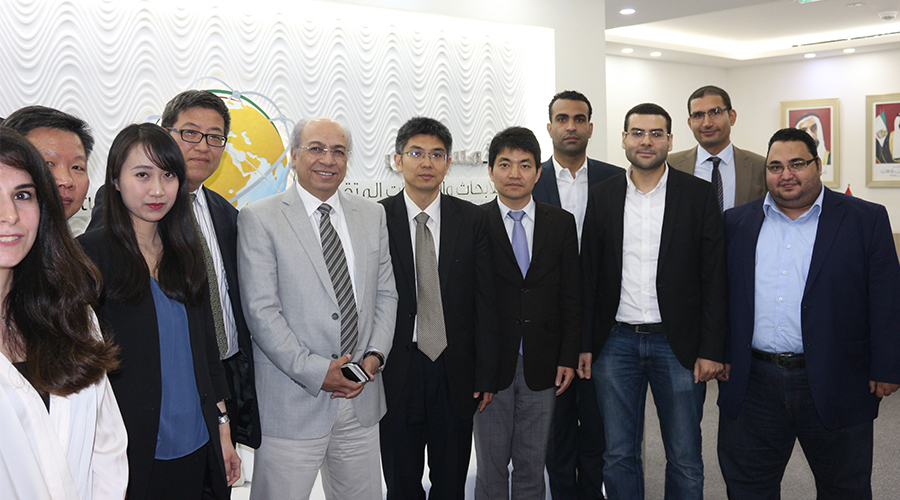To enhance cooperation with international research centers, particularly Chinese ones, the Abu Dhabi based Future for Advanced Research and Studies (FARAS) hosted a delegation from the Shanghai Institute for International Studies (SIIS) on Wednesday May 17. The delegation was headed by Doctor Ye Qing, Assistant President of SIIS and Director of the Institute of Global Governance. The delegation included a number of experts from the Institute for Foreign Policies Studies, the Center for West Asian and African Studies, and the Center for Asia-Pacific Studies which are affiliated with SIIS.
During the delegation’s visit, a dialogue session was held between FARAS and SIIS experts, marking the beginning of a series of Gulf-Chinese academic dialogues. The session focused on the features and orientations of Chinese policies towards the Middle East in light of the New Silk Road Initiative. The session also addressed the general dimensions and aspects of the initiative and discussed how it will contribute to enhancing economic relations between China and regional countries. The focus on this initiative was based on the fact that the New Silk Road has been the most important development on the agenda of the Chinese diplomacy in 2017.
The SIIS delegation’s visit to FARAS came two days after the One Belt, One Road Summit, where China hosted world leaders in Beijing on May 14 and May 15.
Meanwhile, the discussion also addressed China’s stance regarding regional affairs and its relations with major powers in the region amid the rise of China’s diplomatic role, and its attempt to make this role efficient and influential both economically and politically.
It is worth noting that SIIS is one of the biggest research centers in China. The Center for West Asian and African Studies, which handles Middle Eastern studies, is one of SIIS’ affiliate centers, and plays an important role in enhancing the Chinese political and academic circles’ understanding of the Middle East.


